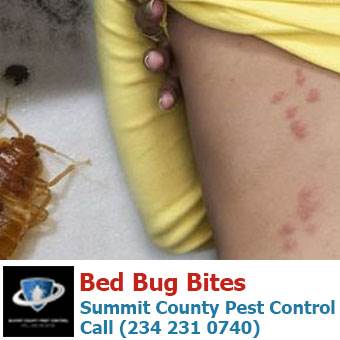Professional A1 Bed Bug Exterminator in Houston - Effective Solutions
Professional A1 Bed Bug Exterminator in Houston - Effective Solutions
Blog Article
Understanding the Lifecycle of Bugs for Targeted Control Approaches
Comprehending the lifecycle of parasites is a basic facet of reliable insect administration approaches. Via a deeper understanding of exactly how parasites prosper and progress, customized control approaches can be created to attend to details points in their lifecycle, ultimately leading to even more effective pest administration results.
Relevance of Understanding Pest Lifecycle
Comprehending the lifecycle of pests is necessary for creating reliable and targeted control methods in parasite management. By comprehending the various stages a parasite goes via from egg to adult, pest control specialists can determine susceptible points in the lifecycle where treatment can be most successful.
Moreover, identifying the certain ecological conditions required for each stage of the pest's lifecycle can guide choices on environment alteration or exemption techniques to interrupt the lifecycle and decrease pest populaces. This expertise makes it possible for pest monitoring experts to carry out aggressive measures rather than relying entirely on reactive treatments, leading to more long-lasting and lasting parasite control remedies. Ultimately, a detailed understanding of parasite lifecycles empowers insect control experts to customize their approaches effectively, reducing environmental effects and making the most of control results.
Secret Stages in Parasite Development
To properly execute targeted control strategies in bug monitoring, a vital element lies in thoroughly recognizing and understanding the vital stages in insect advancement. Pest growth usually is composed of several vital stages that are vital for their lifecycle and monitoring.

Vulnerabilities in Bug Lifecycle
Throughout the various phases of a bug's lifecycle, unique vulnerabilities arise that can be strategically targeted for efficient control procedures (A1 bed bug extermination houston). One important susceptability lies in the egg phase, where pests are typically more susceptible to particular insecticides or organic control agents due to their soft external covering, making them easier targets for treatment. Understanding these susceptabilities in the pest lifecycle is important for developing specific and reliable control strategies that efficiently handle insect populaces while decreasing environmental influence.
Carrying Out Targeted Control Measures

Applying targeted control measures commonly entails a multi-faceted technique. This might include environment adjustment to make the setting much less hospitable to insects, such as removing standing water for insect control or securing entrance points for rats. In addition, organic control techniques can be made use of, where all-natural predators or virus are presented to maintain bug populations in check.
Integrated Bug Management (IPM) strategies that integrate numerous control measures in a worked with and lasting way are frequently the most effective in achieving lasting insect administration goals. By implementing targeted control measures based on a thorough understanding of parasite lifecycles, insect populaces can be successfully controlled while reducing dangers to human health and wellness and the setting.
Improved Bug Management Practices

Additionally, the unification of biological control agents, such as natural killers or pathogens of parasites, can help in reducing dependence on chemical pesticides and advertise a much more well balanced environment. Implementing physical obstacles and traps can also belong to enhanced bug monitoring practices, using safe and targeted remedies for parasite control. Furthermore, using pheromones and various other semiochemicals can disrupt pest mating patterns and interaction, causing lowered insect populaces with time.
Conclusion
To conclude, comprehending the lifecycle of bugs is vital for efficient parasite monitoring approaches. By recognizing essential phases in pest growth and vulnerabilities in their lifecycle, targeted control measures can be implemented to decrease parasite populations. Enhanced pest monitoring practices can help decrease the reliance on broad-spectrum chemicals and promote even more eco pleasant and lasting insect control methods. This knowledge plays an important function in maintaining healthy environments and agricultural performance.
Understanding the lifecycle of insects is vital for developing efficient and targeted control methods in insect monitoring. By understanding the various phases a bug goes through from egg to grownup, parasite control specialists can identify at risk points in the lifecycle where intervention can be most effective. Eventually, a comprehensive understanding of bug lifecycles equips pest control practitioners to customize their methods efficiently, making best use of and decreasing environmental influences control you can try these out results.
By applying targeted control actions based on a detailed understanding of bug lifecycles, pest populations can be properly regulated while decreasing risks to human wellness and the atmosphere.
By determining essential stages in parasite development and susceptabilities in their lifecycle, targeted control procedures can be executed to lessen pest populaces.
Report this page